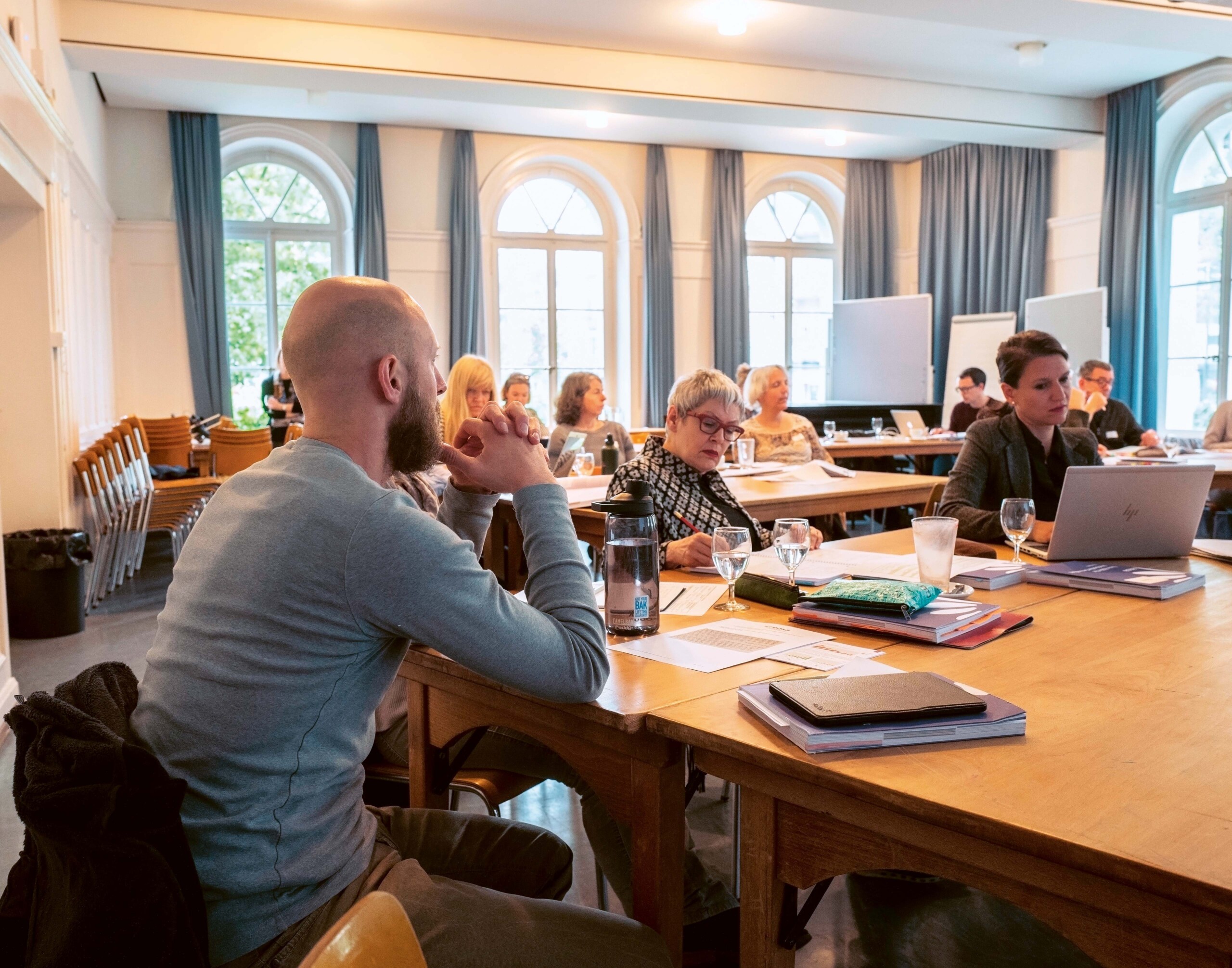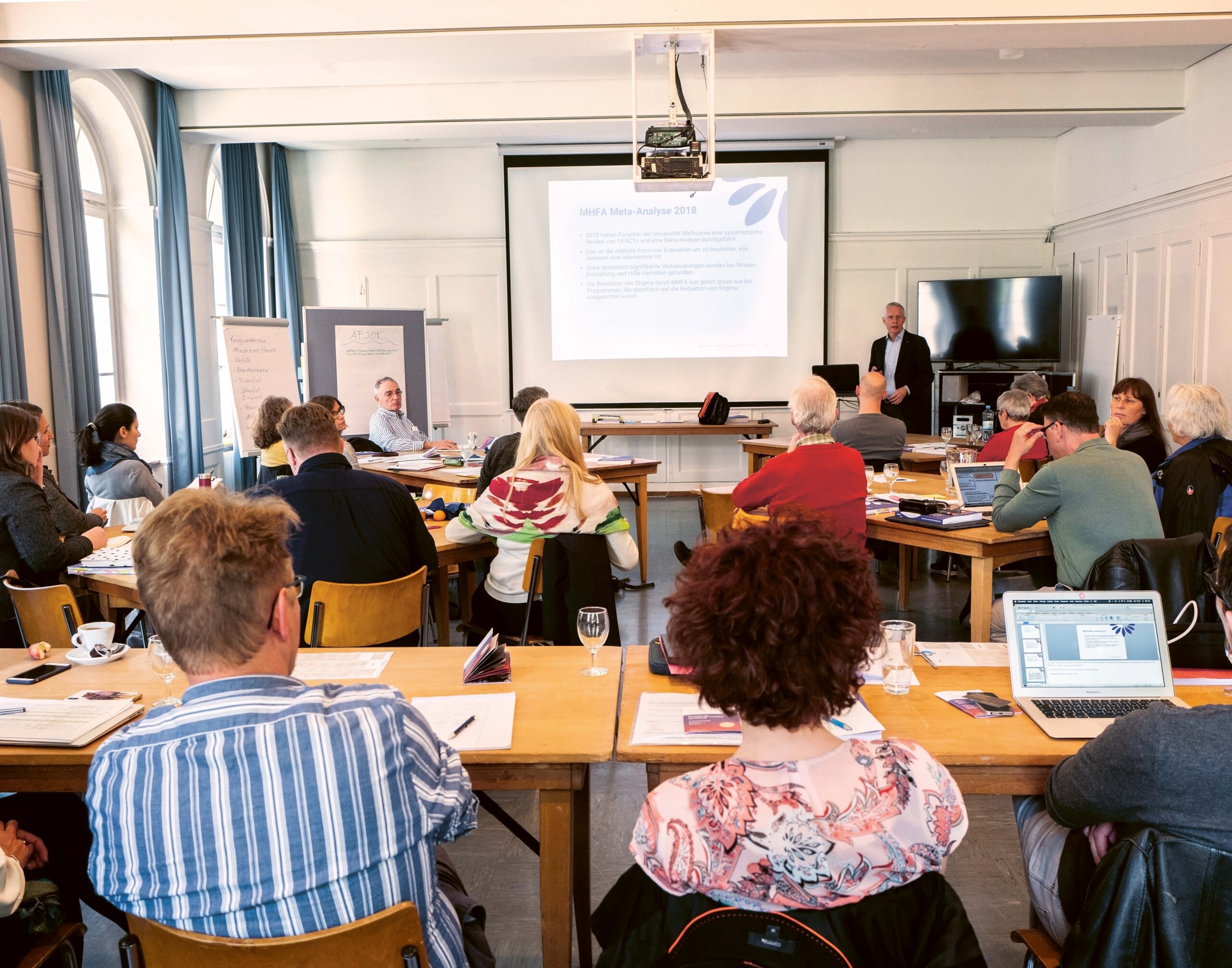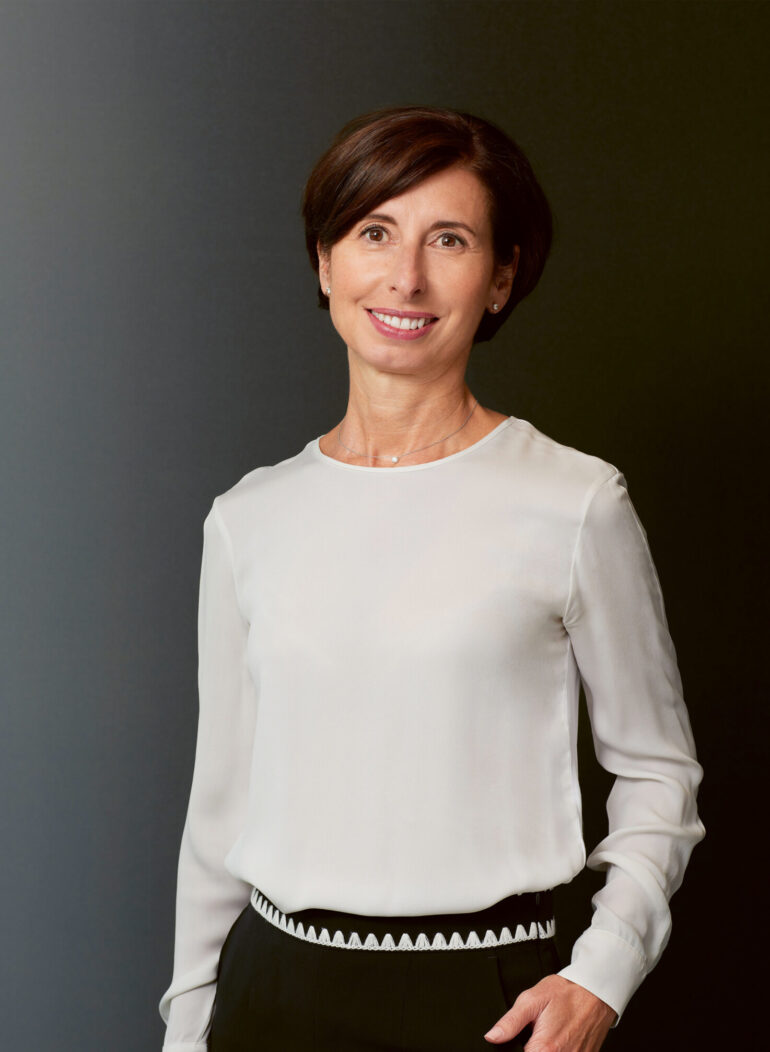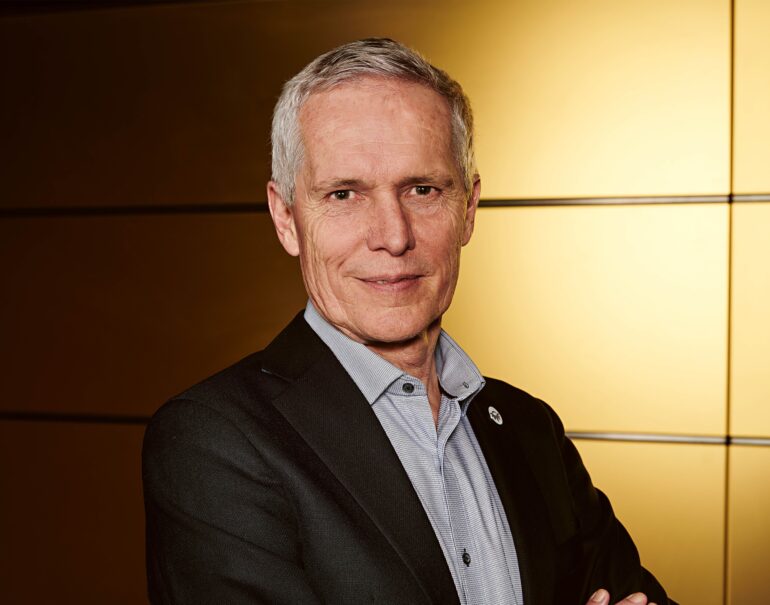Your friend has gone quiet. In fact, she hasn’t said anything much for a while now. What’s wrong? What can you do? Mental health first aid is not a matter of course. The Pro Mente Sana foundation and the Beisheim Stiftung have dedicated themselves to this taboo topic with the ensa project.
The number of coronavirus cases is doubling almost every week. With the dark winter months drawing in and the government’s advice to avoid contact with others wherever possible, loneliness is becoming widespread. And with loneliness, feelings of fear and anxiety often grow, too. Fear of losing one’s livelihood, fear of coronavirus – or fear of losing everything. The ensa project for mental health first aid, run by the Beisheim Stiftung (charitable foundation) and Pro Mente Sana (funding partner/project owner), tackles this issue.
There was something in the air
[TEXT] In autumn 2017, a journalist contacted Roger Staub, director of Pro Mente Sana, and asked him what he thought about mental health first aid (MHFA). At almost exactly the same time, Patrizia Rezzoli, director of the Beisheim Stiftung, joined the mental health first aid project via MHFA Canada. Both were immediately convinced that the programme was exactly what was needed. ‘Mental health issues remain taboo in our society,’ stresses Staub. ‘In our meritocratic culture, people don’t talk about things being too much, about not wanting to carry on, not being able to carry on, or about needing help.’ The fear of experiencing discrimination or losing your job is too great.
Tackling the taboo
We’ve all experienced having a colleague, friend or family member withdraw. But how can we respond? There are lots of lifeguarding and first aid courses on offer in Switzerland, but not many providing mental health support. Because mental health issues are still taboo, we often don’t know how to talk to those affected, reflects Patrizia Rezzoli. ‘When we do nothing, symptoms often get worse,’ adds Roger Staub. ‘Those affected only seek help when things have reached breaking point – by which time therapy is often difficult, costly and time-consuming.’ Most people try and conceal their issues at work so that no-one notices what is going on. The two charities are trying to combat this by acquiring a Swiss licence for the MHFA programme. Staub is convinced that ‘being able to offer first aid is important for our coexistence. A society full of first aiders would be a better world for us all.’ But there is a long way to go until then. Pro Mente Sana still encounters the taboo around mental health: ‘Without the strong support of the Beisheim Stiftung as a project partner, we would never have got this project off the ground,’ asserts Staub. ‘We’ve been fighting from the get-go, because no-one wants to donate to support our clientele – or not yet.’
Patrizia Rezzoli,
Managing Director of the Beisheim FoundationRoger Staub,
Managing Director of Pro Mente Sana
Taking on the project together
[TEXT] ‘After a trip to visit MHFA Holland together, we got to work,’ recounts Patrizia Rezzoli. ‘We needed a name that was easy to pronounce in German, French, Italian and English. The English abbreviation MHFA wasn’t going to work in Switzerland. We needed a word that didn’t have any negative connotations,’ says Roger Staub. ‘Which is how we arrived at ensa.’ Rezzoli adds: ‘The word comes from an indigenous Australian language and means “answer”. The logo is a stylised depiction of the medicinal flower arnica.’ The project launched its pilot phase in 2019.
Setting up a first aid course
Since the beginning of 2020, Pro Mente Sana has been rolling out the courses and expanding them across Switzerland. ‘We are responsible for the operational implementation of the project,’ explains Roger Staub. ‘The Beisheim Stiftung is a strong, dedicated partner at our side and supports us not only financially but also in drawing up business plans, and with legal issues and communications.’ Both charities contribute their own specific expertise. Pro Mente Sana has already trained 150 instructors, who offer and conduct ensa courses for the general public. Anyone who is interested can become a mental health first aider. Around 1,500 people have already attended the course. During lockdown, in-person courses could no longer take place, so Pro Mente Sana adapted its approach. ‘Pro Mente Sana developed and rolled out an online version of the first aid course very quickly,’ says Patrizia Rezzoli. ‘The ensa webinar isn’t just a “lite” version of the face-to-face ensa course.’ In future, the in-person courses and the webinars will continue to be offered as two equivalent options. ‘Our next aim,’ adds Staub, ‘is to enable one percent of the Swiss population to enact the “ROGER” principle.’ ROGER stands for reacting, open and unbiased listening and communication, general support and information, encouraging someone to seek professional help, and mobilising resources. ‘We talk about “first aid” because ROGER is not generally used in emergencies. The ROGER principle is applied when we notice people close to us whose mental health has deteriorated over time,’ says the Pro Mente Sana director.


The ensa programme run by Pro Mente Sana launched at the beginning of 2020 and trains mental health first aiders.
Personal recommendations
The service is proving successful. The feedback from first aiders who have undergone the training is very positive, and new participants often come to the course via personal recommendations. Patrizia Rezzoli has taken the course herself and is highly enthusiastic: ‘The course helps you understand the topic of mental health and its many facets, teaches you how to talk to people, how to approach the topic appropriately, and how to refer people to support services and networks.’
Learn more about the Swiss Pro Mente Sana Foundation and the Prof. Otto Beisheim Foundation on stiftungschweiz.ch




